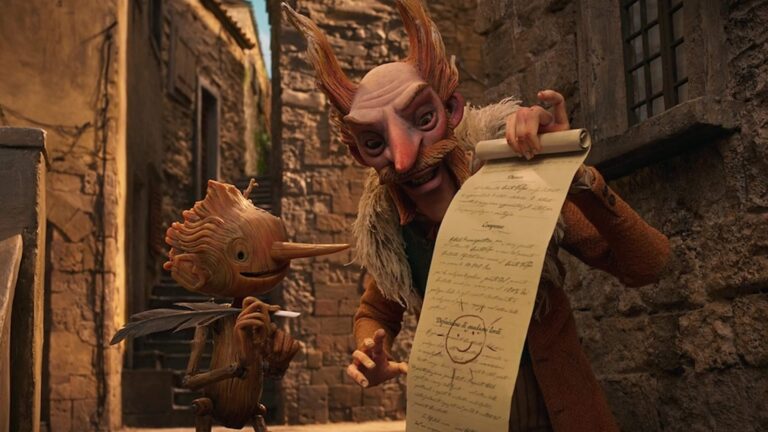
What screenwriting lessons can screenwriters learn from the game of chess?
Chess. The ultimate game of strategy where every single move matters.
Screenwriting. A career where every decision that you make in your script and your career matters.
It’s a common trope in movies and life to apply themes of chess strategy to everything from business to sports. Here we will embrace that trope and showcase how screenwriting really is like chess and that screenwriters can learn some valuable lessons when comparing the two.
1. Every Move or Decision Must Be Calculated

In chess, it's a move. In screenwriting, it's a decision.
But a move can't just be a move, and a decision can't just be a decision. They both have to be calculated.
In chess, you calculate a move based on many elements within the game. You have your strategy, and you try to utilize assessed knowledge of your opponent's strategy. You're always gathering information, all of which leads to your eventual win, loss, or stalemate.
In screenwriting, when you're marketing your screenplays, you should be deciding who you market your scripts to based on a number of elements.
Novice screenwriters usually just blanket-query all production companies and studios that they've read about. That's not a smart strategy. Why send your script to companies that aren't making movies like yours?
You have to gather information about your script — estimated budget, genre, theme, characters types — and match that with companies that are making similar projects. If you're looking for representation, you need to gather information about the manager or agent that you are considering and make sure that they are a good fit with what you are writing and that you are a good fit with what type of screenwriters they represent.
And to take the comparison away from the business of screenwriting and closer to the depth of the craft itself, you need to remember that every single move and decision that you make within your screenplays have to be calculated as well.
If you add a supporting character to the story, they have to have a specific reason for being there.
If you add a line of dialogue to a character's scene, it has to have a particular purpose.
If you cut a scene from your script, you have to understand the repercussions of that edit.
Every move or decision you make must be calculated.
2. Some People Play Chess and Others Are Chess Players

Lots of people play chess. But not all of them are chess players. And you always know when you're facing a fan of the game or when you're facing someone striving to master it. They are the ones studying the game and strategizing.
In screenwriting, some people write screenplays (pretty much everyone in Hollywood), and others are great screenwriters. And those great screenwriters comprise just a small fraction of all who are trying to break through in this business. They are the ones studying the craft and honing their own skills. They don't live in the clouds like some, and they don't treat it as a hobby like others. This is what they want to do, and nothing is going to stand in their way.
And only a smaller fraction of those great screenwriters become professionals.
So remember that becoming a great screenwriter takes a lot of work. It's not going to happen the first time you sit down to write.
3. Learn to Spot the Patterns

In chess, there are specific patterns that chess players follow to win the game. And to become a better chess player, you have to be able to spot those familiar patterns.
Screenwriting is no different. If you look at the most heralded or successful movies each year, there are clear patterns to telling an engaging and cathartic story in every genre. This isn't about fill in the blank formulas and copy-cat archetypes. It's about the DNA of storytelling being in our blood as a human race — and the proof of that DNA is found in the movies released every year.
Themes, structures, and conflicts are universal, and they live on through each generation. The originality comes in the context screenwriters apply them and the worlds and characters that they choose to inhabit them.
What's the difference between Rocky and Rudy?
What's the difference between Annie Hall and When Harry Met Sally?
What's the difference between The Thing and Alien?
Very little. But the context of the worlds and characters that inhabit those similar themes, structures, and conflicts differentiate them.
The patterns of engaging and compelling cinematic stories in every genre are there. You just have to study them and apply your own strategy to the mix to stand out.
4. Patterns Are Great, but Creativity and Risk Are Necessary to Prevail

Chess players can't rely solely on the familiar strategic patterns. The best players turn the tables by doing the inspired and unexpected.
In screenwriting, you have to master that balance of familiar and original. It's a tight rope to walk, but a necessary one. Hollywood loves familiar only because audiences do as well. It takes a lot of commitment in the eyes of the audience to go see a movie. You have to get dressed, venture to the theater, wait in line, spend money on the tickets, spend money on the drinks and snacks, deal with that person in front of their phone or the people talking during the movie, etc.
So when audiences are looking for a movie to watch, they don't want to be disappointed. They often want to watch an action flick for the action, a comedy for the laughs, a horror movie for the scares, and a melodrama for the tears. Familiar is good. It's comfortable. And Hollywood studios know that, which explains the remakes, reboots, retreads, and cookie-cutter choices they make.
But audiences get bored. Familiar is good, but only to a certain degree. Seeing Matthew McConaughey in a romantic comedy where he gets the girl by the end got old pretty quick after the first few. The romantic comedy died until it changed with movies like 500 Days of Summer. Suddenly, romantic comedies were being told in different ways. That same year, The Proposal offered something new and original as well.
The best way to stand out is to find those successful and comfortable patterns that audiences and Hollywood love, and take those creative risks to stand apart.
How many post-apocalyptic movies were there that showcased a set of characters living in a world inhabited by dangerous monsters or aliens? Well, A Quiet Place gave us a new and original twist within that regular genre story structure pattern.
Read ScreenCraft's 7 Screenwriting Lessons A QUIET PLACE Can Teach You!
Take a familiar pattern and make it your own.
5. If You Only Take on Easy Opponents, You'll Never Improve

In chess, they're called patzers.
In screenwriting, they're those easy scripts that anyone can write. That typical action flick with a good guy versus some bad guys. That cliché romantic comedy where the girl meets the guy, falls in love, loses the guy, and then gets the guy back. That obvious ghost in the house flick.
Those types of screenplays aren't going to get the notice that you need to break through. And they are not going to help you evolve as a screenwriter.
You need to do your best to take on those tough projects. You know, the one that's been in the back of your head but has scared you because you don't know how to pull it off and you don't want to undertake the necessary research to make it happen.
It's okay to have those conventional — but well written — staples that Hollywood may want to see, as long as you follow the fourth directive above. But you need to challenge yourself from time to time.
6. Sacrifice Is Necessary

In chess, sometimes you need to sacrifice those key pieces. It hurts, but it's necessary.
In screenwriting, sometimes you have to kill those darlings. Mastering the art of craft of screenwriting requires it — and the business of screenwriting demands it.
You will create a character you love, only to discover that they're not right for the narrative.
You will conjure a moment you cherish, only to realize that it's redundant.
You will design a sequence so thrilling, only to later understand that it has nothing to do with the story.
These types of sacrifices will be with you for the rest of your screenwriting career, no matter how many Oscars you've won or how many millions your movies have made.
7. Don't Waste Your Time Chasing Lowly Pawns

Small victories build confidence in chess, but if you're only chasing pawns, you're missing out on the big picture.
Screenwriters often get stuck in the trap of small victories. They will enter small contests that nobody has heard of, or they will market their scripts to representation, companies, or talent that nobody in Hollywood deals with.
Screenwriters face tough rejection. Building a little confidence with small wins is nice, but in the long run, those small battles won won't ever equal winning the war.
You need to play with the big dogs to win the big battles. It's a waste of time entering contests that have little to no real Hollywood connections (check their credits and declarations). It's a waste of time trying to get read or signed by small-time managers, agents, and producers. If they don't have significant credits, they're not going to get you significant credits. If they only make micro-budget movies that nobody has ever seen, then there's not much they can do for you.
If you're just in it for fun, that's fine. But if you want to make a career out of this, you're going to have to stop chasing those lowly pawns are go for those Castles and Queens.
8. Connect Your Pieces Wisely

You can't win in chess with a single piece. All of them are connected. And whatever pieces you have throughout the game need to be used wisely, and in unison with one another.
In your screenwriting career, if you're doing things right, you're slowly building a network of industry contacts and collaborators. These are your pieces. You never want to sacrifice a piece without reason. You never want to move a piece too soon or too late.
If you've met some industry insiders at a writers conference or film festival, don't bombard them with scripts that following Monday. Build a relationship with them and keep them in play until you need or are ready to make that move.
If you have a friend that has become successful in the industry, don't come knocking at their door asking for handouts. Let them ease into a comfortable position where they feel they can come to you when the time is right.
Use your networks and contacts wisely.
Read ScreenCraft's Maps Screenwriters Can Use to Build Their Industry Network!
9. If You Lose, Do So Graciously

Rejection is part of the business. Even the most successful screenwriters experience more rejection than they will ever receive acceptance.
Too many screenwriters take rejection personally, whether it's through negative feedback in a writers group, negative coverage in a competition, or rejection from a Hollywood insider.
Your response will reflect on you as a screenwriter and person. And remember that while film and television are big industries, Hollywood is actually very small. It's a place that thrives on networking and personal relationships. They all know each other.
When you lose, lose graciously. The smart screenwriters learn from their losses. They examine why they fail and seek out any helpful information they can. And when Hollywood insiders see that positive response, they remember.
Make calculated decisions in your screenwriting. Strive to be a great screenwriter, not just someone who writes scripts. Do your homework and pay attention to the patterns in great cinematic stories. Know when to take creative risks within those patterns. Challenge yourself to better yourself as a screenwriter. Know that you have to kill your darlings. Don't chase small confidence builders, chase the big dogs that can make your career. Use your networks and contacts wisely. And finally, when you're rejected, take it graciously and learn from it.
Happy playing.
Read ScreenCraft's 9 Reasons Screenwriting Is Exactly Like Poker!
Ken Miyamoto has worked in the film industry for nearly two decades, most notably as a studio liaison for Sony Studios and then as a script reader and story analyst for Sony Pictures.
He has many studio meetings under his belt as a produced screenwriter, meeting with the likes of Sony, Dreamworks, Universal, Disney, Warner Brothers, as well as many production and management companies. He has had a previous development deal with Lionsgate, as well as multiple writing assignments, including the produced miniseries Blackout, starring Anne Heche, Sean Patrick Flanery, Billy Zane, James Brolin, Haylie Duff, Brian Bloom, Eric La Salle, and Bruce Boxleitner. Follow Ken on Twitter @KenMovies
For all the latest ScreenCraft news and updates, follow us on Twitter, Facebook, and Instagram.
Tags
Get Our Screenwriting Newsletter!
Get weekly writing inspiration delivered to your inbox - including industry news, popular articles, and more!

























